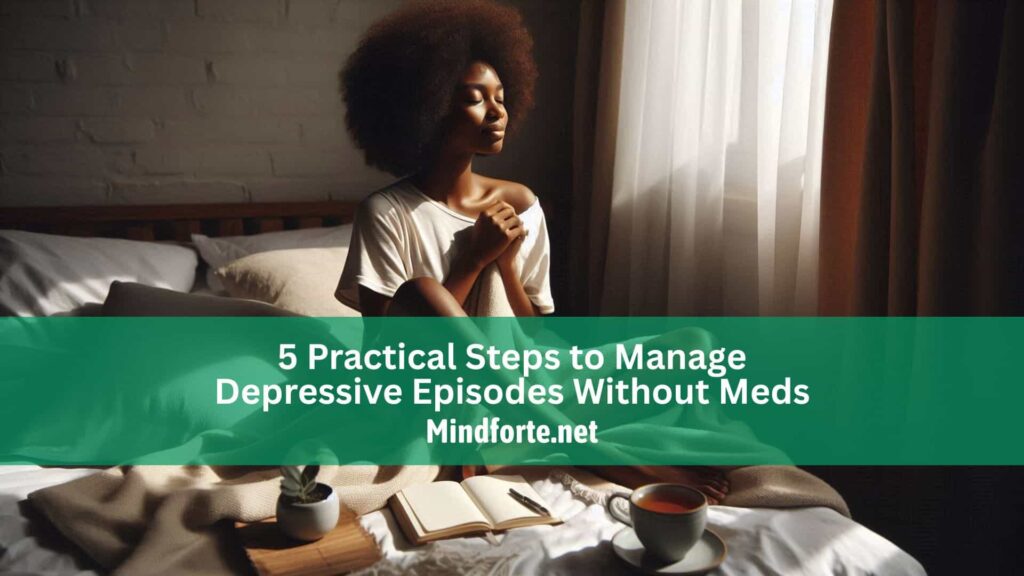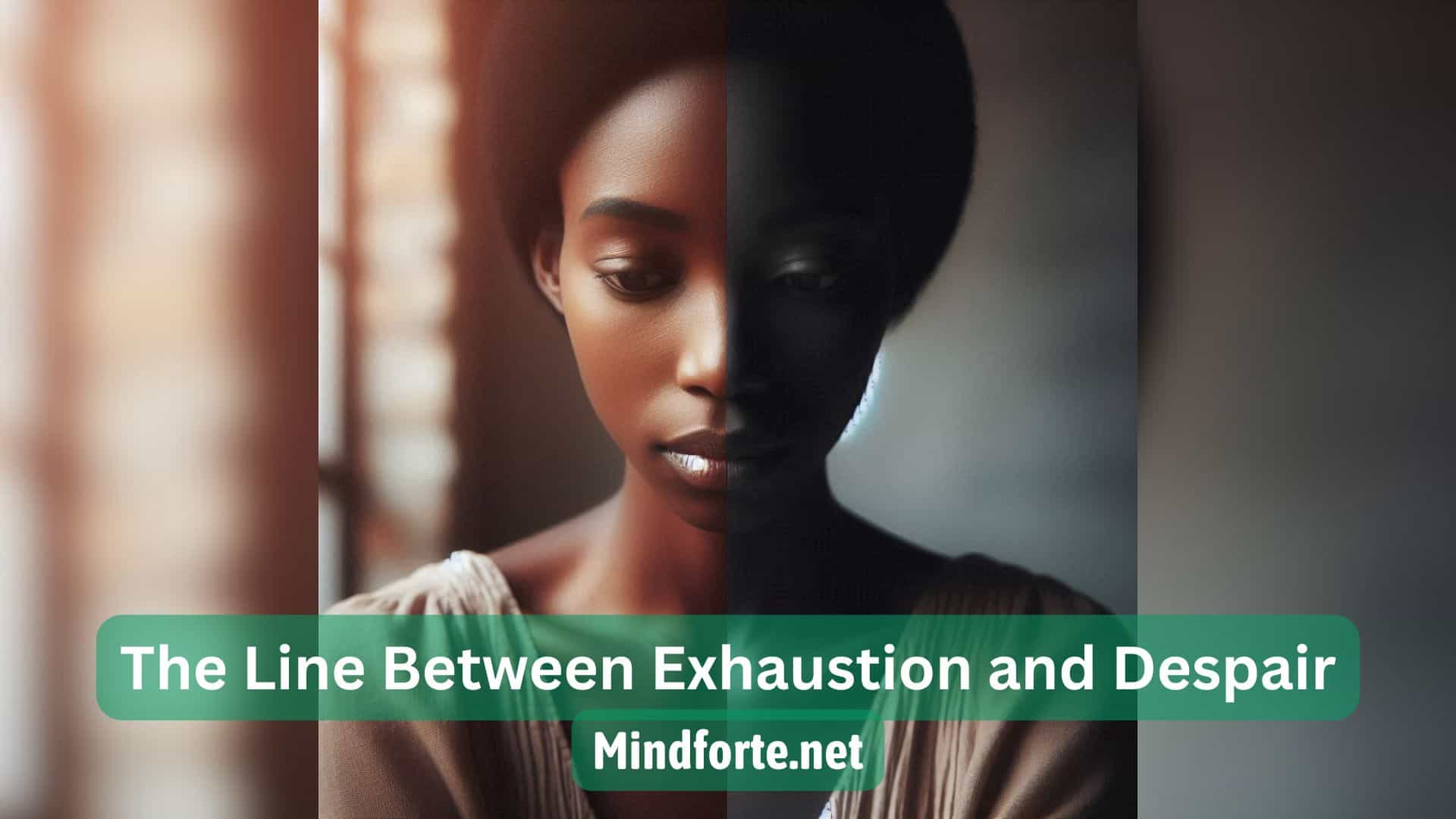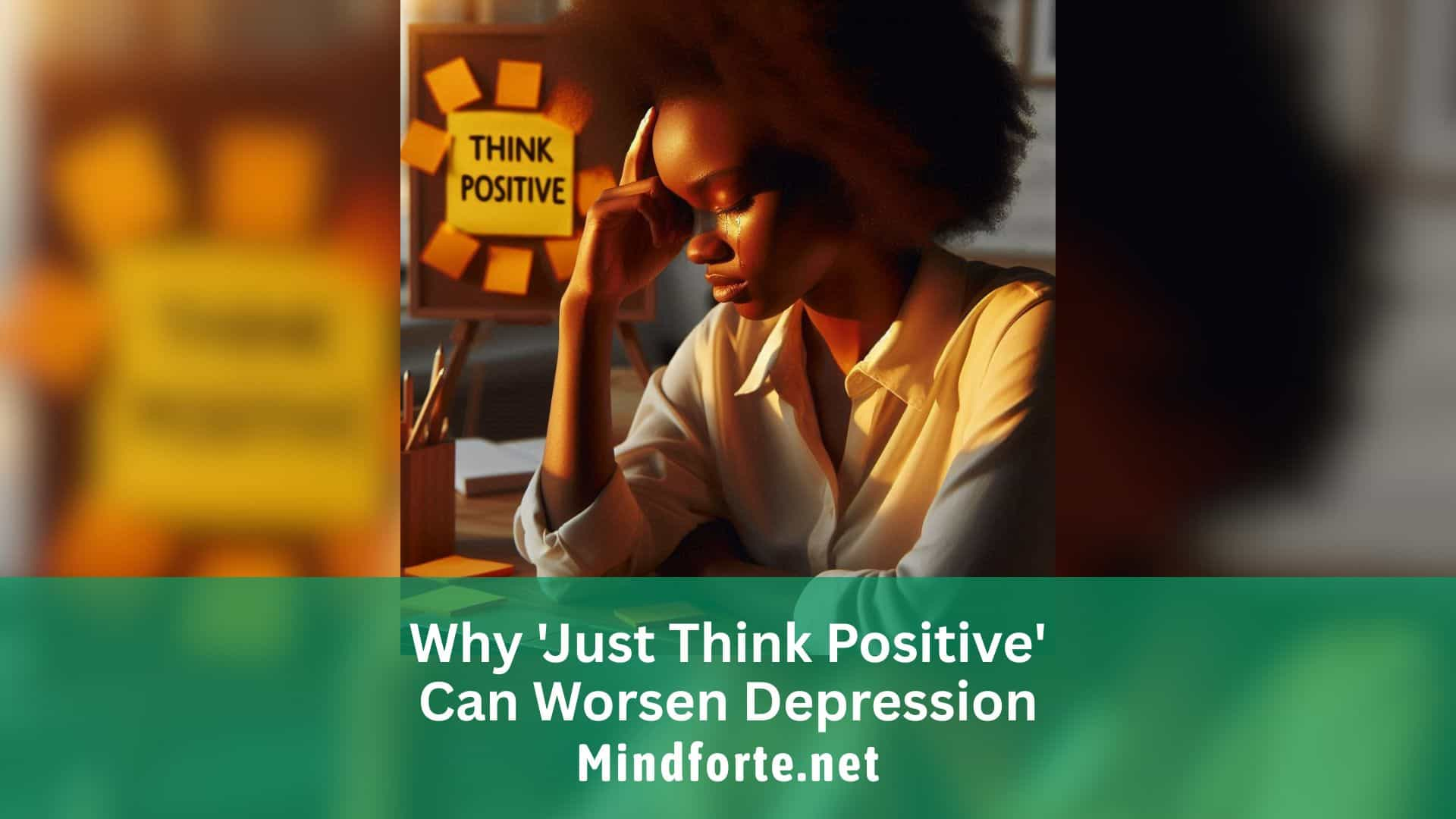There’s a moment in many people’s lives when getting out of bed feels like climbing a mountain.
Brushing your teeth, replying to texts, even smiling – it all feels too much.
If this is familiar, you’re not lazy. You’re not weak. You’re likely in the middle of a depressive episode.
In Nigeria, depression is often misunderstood.
You might hear, “Just pray about it,” or “You have everything – why are you sad?”
And while faith and gratitude are beautiful, they’re not a cure for clinical depression.
Medication can be life-saving for many.
But what if you want to start with non-medical approaches, or supplement your treatment with practical habits?
Here’s the good news: There are evidence-based, accessible steps you can take right now to manage depressive episodes, even without meds.
Let’s explore five of them – deeply, practically, and compassionately.

1. Reconnect with Your Body – Gently
Why It Matters
Depression often disconnects you from your body. You feel numb, heavy, or empty. Movement – especially consistent, gentle movement – can be one of the most powerful ways to signal safety and vitality to your brain.
What to Do
- Start small. Aim for 10 minutes of slow walking, stretching, or dancing.
- Make it sensory. Try walking barefoot on grass, or doing yoga with soft music.
- Focus on rhythm. Rhythmic motion (like walking or swimming) calms the nervous system.
The Science
Studies show that regular movement reduces depressive symptoms by releasing endorphins and improving neuroplasticity (WHO, 2022; NIMH, 2023).
Nigerian Context
In our culture, “exercise” is often linked to weight loss. But for mental health, the goal is movement, not muscle. Invite your body back to life – even if it’s just swaying to music while cooking.
2. Create One “Non-Negotiable” Daily Routine
Why It Matters
Depression robs you of structure. Days blur together, and simple tasks feel pointless. But structure gives your brain predictability – and even one anchor a day can shift your outlook.
What to Do
- Choose one thing. Brushing your teeth. Showering. Drinking water when you wake.
- Make it sacred. Do it at the same time every day. No negotiation.
- Add a gentle reward. E.g., “If I brush my teeth, I’ll light my favorite candle.”
The Science
Behavioral Activation – a core tool in CBT – shows that action can lead to motivation, not the other way around (American Psychological Association, 2022).
Nigerian Context
Depression isn’t “spiritual laziness.” If you’re struggling to leave your room, it’s not because you lack discipline. Start with one ritual. Let it build you back to yourself.
3. Talk Back to Your Thoughts
Why It Matters
When you’re depressed, your inner voice turns cruel. “I’m useless.” “Nothing will change.” These aren’t truths – they’re symptoms. Learning to question and talk back is vital.
What to Do
- Use a journal. Write down painful thoughts, then respond to them like a friend would.
- Practice “name not blame.” Say: “This is depression talking – not the truth.”
- Counter negative bias. List 1–2 neutral or positive facts about yourself daily.
The Science
Cognitive Behavioral Therapy (CBT) has consistently shown that reframing distorted thoughts can reduce depression’s intensity (Beck Institute, 2021; Cleveland Clinic, 2022).
Nigerian Context
You may have grown up hearing “Don’t speak negatively!” But suppressing isn’t the same as healing. Express the dark thoughts – then lovingly challenge them. That’s psychological help, not denial.
4. Build a Safe Connection (Even When You Don’t Feel Like It)
Why It Matters
Depression says, “No one wants you.” But healing says, “You’re allowed to reach out.” Human connection regulates our emotions – especially when it’s warm, accepting, and shame-free.
What to Do
- Choose low-pressure connection. One message to a friend. Sitting quietly beside someone you trust.
- Use “nervous system connection.” Eye contact, hugs, shared meals.
- Join support groups – either local (ask your therapist) or online.
The Science
Loneliness worsens depressive symptoms; but social connection, even minimal, promotes resilience (NIH, 2021).
Nigerian Context
Culturally, there’s shame around saying “I’m not okay.” But your vulnerability might be exactly what your friend needs to hear. At Mindforte Psychology Clinic, many clients discover that one conversation can be a lifeline.
5. Seek Therapy Sooner, Not Later
Why It Matters
Depression can trick you into thinking you should “figure it out” on your own. But therapy offers a map when everything feels directionless. It’s not weakness – it’s wisdom.
What to Do
- Ask yourself: “Is what I’m doing working?”
- Search locally: Try Therapy in Nigeria providers – especially ones who understand cultural nuance.
- Normalize it: Say, “I’m seeing someone for my mind, just like I would for my body.”
The Science
Therapy, especially talk therapy (CBT, interpersonal therapy, psychodynamic therapy), is highly effective for mild to moderate depression – with or without medication (WHO, 2023).
Nigerian Context
There’s a myth that “only mad people go for therapy.” That’s a lie. At Mindforte, we see students, CEOs, stay-at-home parents, pastors, and artists. Therapy is for humans.
You Don’t Need to Be in Crisis to Deserve Support
There’s something brave about a person who says, “This darkness doesn’t define me.”
Even if you only do one of these five things today – you’ve already started healing.
You don’t have to feel better to start.
You just have to start – even quietly, even slowly.
So here’s your gentle nudge.
Book an appointment here: www.mindforte.net/booking
And if nothing else today, know this:
You are not your depression.
You are the one learning how to live again.
What About You?
Have you tried any non-medication approaches to manage depressive episodes?
Which one helped – or surprised – you the most?
Share in the comments.
Your voice might be the reminder someone else desperately needs.
References
- National Institute of Mental Health. Depression: Overview & Treatments. https://www.nimh.nih.gov/health/topics/depression
- WHO. Depression and Other Common Mental Disorders: Global Health Estimates. https://www.who.int/publications/i/item/depression-global-health-estimates
- Cleveland Clinic. Depression Treatment Without Medication. https://my.clevelandclinic.org/health/diseases/9290-depression
- Verywell Mind. Behavioral Activation for Depression. https://www.verywellmind.com/behavioral-activation-for-depression-5199492
- Beck Institute for CBT. How CBT Works for Depression. https://beckinstitute.org/get-informed/cbt-treatment/depression/
- Journal of African Mental Health. Barriers to Mental Health Care in Nigeria. https://ajmh.org.ng/issues/barriers-nigeria


